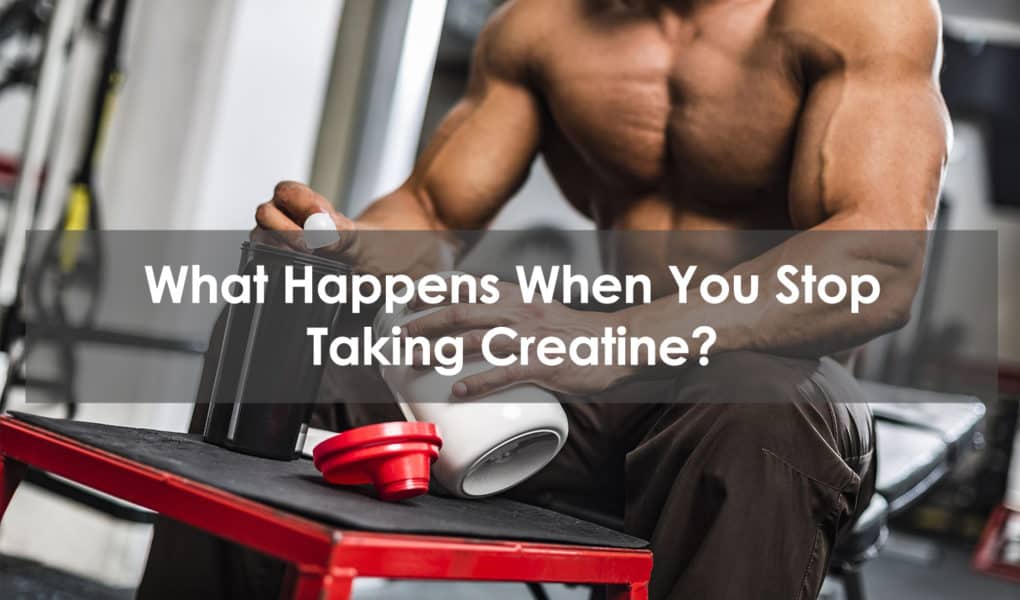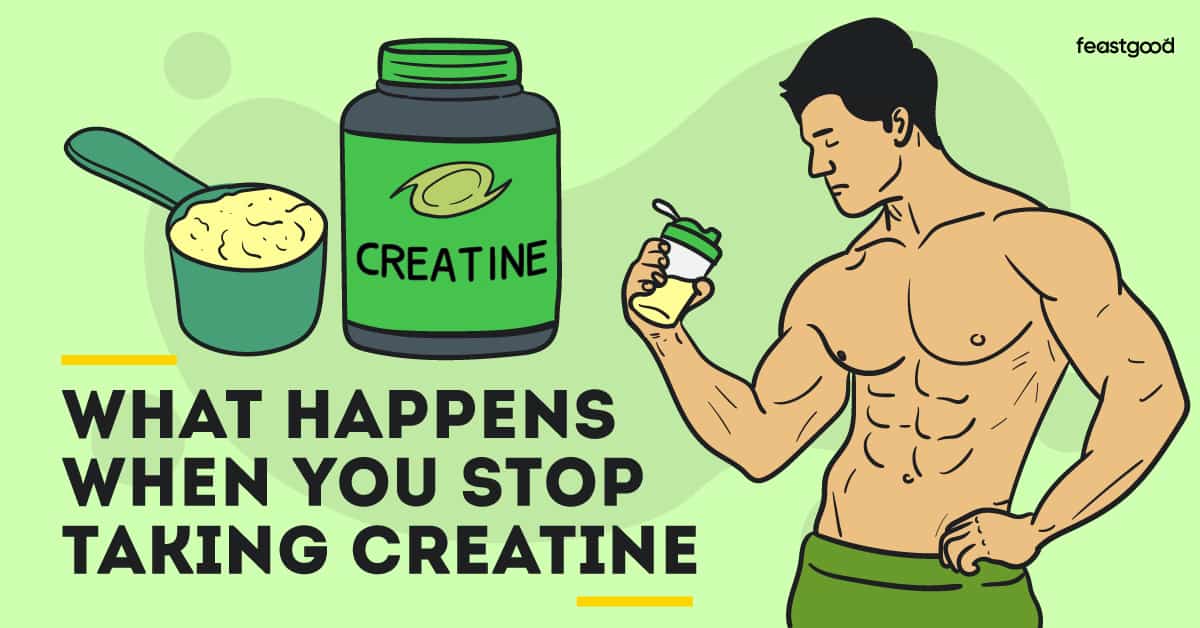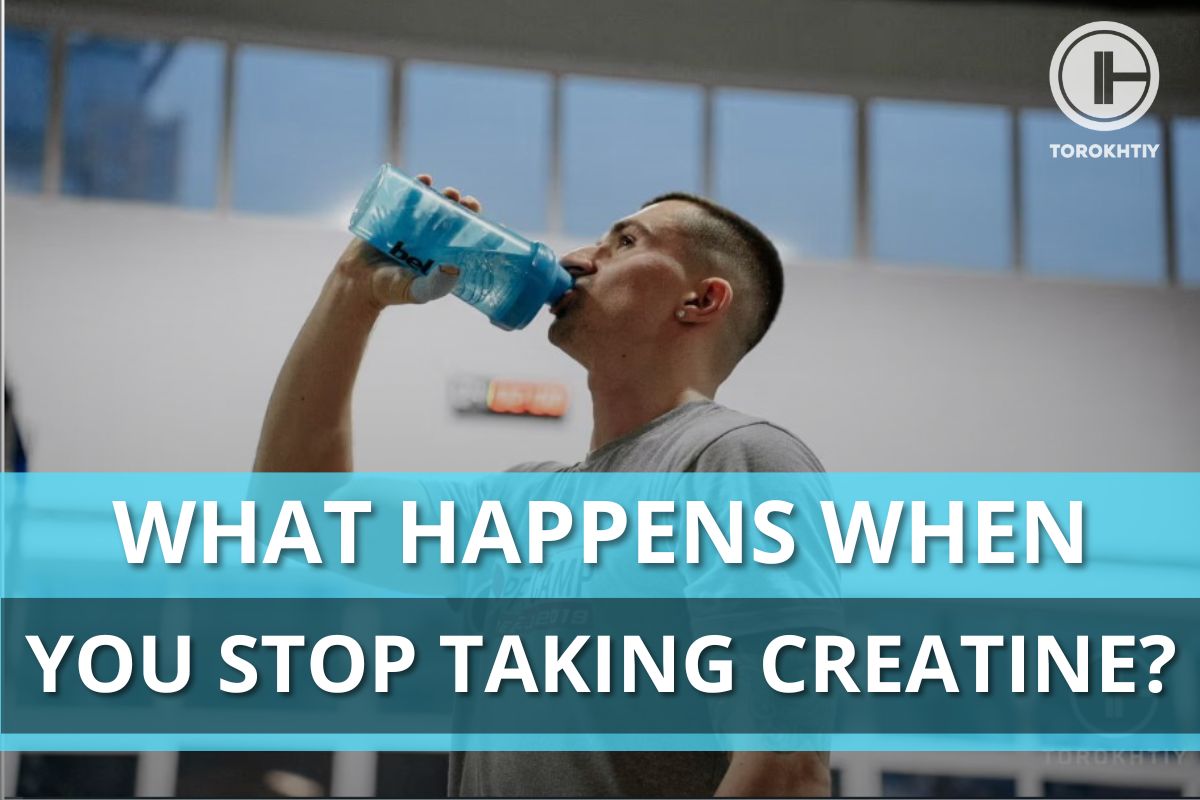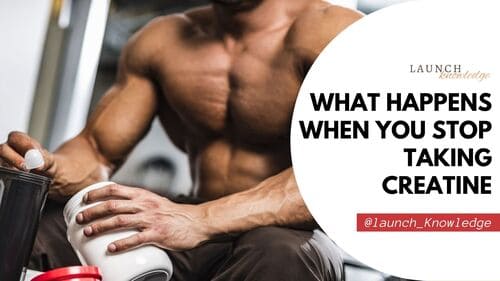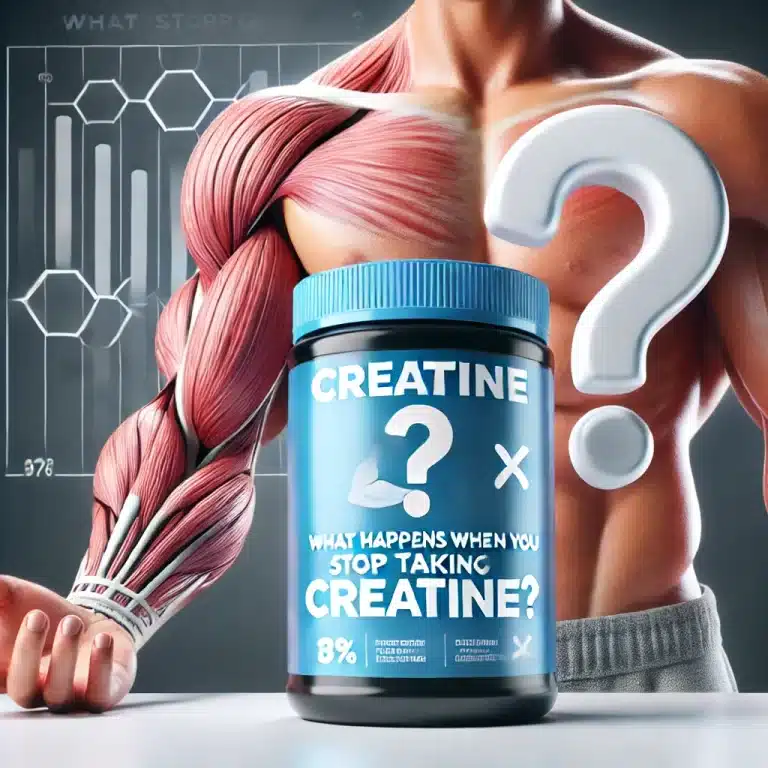If You Stop Taking Creatine Do You Lose Muscle

Imagine yourself, months deep into a rigorous training regimen. You're hitting personal bests, muscles are defined, and you feel fantastic. A significant part of that progress? Creatine, your trusty supplement sidekick. But then life happens – maybe travel, injury, or a simple change of routine – and you consider hitting pause on the creatine. The big question looms: Will all that hard-earned muscle simply vanish?
This article delves into the science and realities behind stopping creatine supplementation. We'll explore what happens to your body when you cease creatine intake, separating fact from gym-bro fiction. More importantly, we’ll focus on understanding the physiological changes involved and what you can realistically expect in terms of muscle appearance and performance.
The Creatine Story: More Than Just Muscle
Creatine isn't some magic potion, despite its almost mythical reputation in fitness circles. It's a naturally occurring compound found in muscle cells. Primarily, it aids in the production of ATP (adenosine triphosphate), the primary energy currency of our cells.
Think of ATP as the fuel that powers muscle contractions, particularly during high-intensity, short-burst activities like weightlifting or sprinting. Creatine supplementation essentially increases the available pool of ATP, enabling you to push harder and longer, which in turn leads to greater muscle growth and strength gains over time.
Our bodies naturally produce some creatine. We also get it from our diet, primarily through meat and fish. However, supplementation allows us to saturate our muscle cells to a higher degree.
How Creatine Fuels Muscle Growth
Creatine enhances muscle growth through several mechanisms. By improving ATP availability, it allows for more intense workouts. This increased intensity leads to greater muscle fiber recruitment and stimulation.
Additionally, creatine has been shown to increase water content within muscle cells. This "cell volumization" creates a more favorable environment for protein synthesis. Think of it as creating a more hospitable and nourishing environment for muscle growth.
Finally, some studies suggest that creatine may reduce muscle protein breakdown and inflammation, further contributing to muscle growth and recovery.
So, What Happens When You Stop?
Now for the million-dollar question: Does stopping creatine mean your muscles will shrivel up like deflated balloons? The answer is a bit more nuanced than a simple yes or no.
The most noticeable change you'll likely experience is a decrease in muscle size, primarily due to water loss. Remember that cell volumization effect? When you stop creatine, your muscles will naturally shed some of that extra water.
This loss of water can make your muscles appear smaller and less defined. However, it's important to understand that this isn't actual muscle loss. It's simply a change in hydration levels.
Strength and Performance Decline?
Beyond the visual changes, you might also notice a slight decrease in strength and power output. This is again related to the reduction in available ATP.
Without the extra creatine stores, your muscles won't be able to regenerate ATP as quickly during high-intensity activities. This could lead to a feeling of fatigue setting in sooner during your workouts.
The extent of this decline varies from person to person. It depends on factors like training intensity, genetics, and overall diet. However, the drop is usually not dramatic.
The Good News: Muscle Memory is Real
The good news is that the actual muscle tissue you've built while taking creatine doesn't simply disappear. Muscle memory is a real phenomenon. Your body retains the ability to rebuild muscle mass more quickly than someone who has never trained before.
Even if you experience some muscle atrophy due to reduced training intensity or changes in diet while off creatine, you'll likely regain that muscle mass relatively quickly once you resume training and creatine supplementation.
Think of it as priming the pump. Your muscles have already learned the movements and adaptations necessary for growth. They're just waiting for the right signals to reactivate.
Practical Considerations
If you're considering taking a break from creatine, there are a few things you can do to minimize any potential muscle loss. First, maintain a consistent and protein-rich diet. Protein is essential for muscle repair and growth, regardless of whether you're taking creatine or not.
Second, continue to train consistently, even if you're not pushing yourself as hard as you were while on creatine. Maintaining some level of activity will help preserve muscle mass and strength.
Third, consider other supplements that can support muscle growth and performance, such as beta-alanine or branched-chain amino acids (BCAAs). These supplements work through different mechanisms than creatine and can help maintain muscle mass and energy levels.
Cycling Creatine: Is It Necessary?
Many people believe that cycling creatine – taking it for a period of time followed by a break – is necessary to prevent the body from becoming desensitized to its effects. However, there's limited scientific evidence to support this claim.
Most studies suggest that creatine can be taken safely and effectively for long periods of time without any adverse effects. In fact, some research even suggests that continuous creatine supplementation may offer additional benefits, such as improved cognitive function.
Ultimately, the decision to cycle creatine is a personal one. If you feel that you benefit from taking breaks, then by all means do so. However, it's not necessarily required for everyone.
The Takeaway: Stay Informed, Stay Realistic
Stopping creatine will likely lead to some changes in muscle size and performance. But these changes are primarily due to water loss and a slight decrease in ATP availability.
The actual muscle tissue you've built won't disappear overnight. By maintaining a consistent diet and training regimen, you can minimize any potential muscle loss.
Remember to consult with a healthcare professional or registered dietitian before starting or stopping any supplement regimen. They can help you determine the best approach for your individual needs and goals. Stay informed, stay realistic, and keep pushing towards your fitness aspirations!

